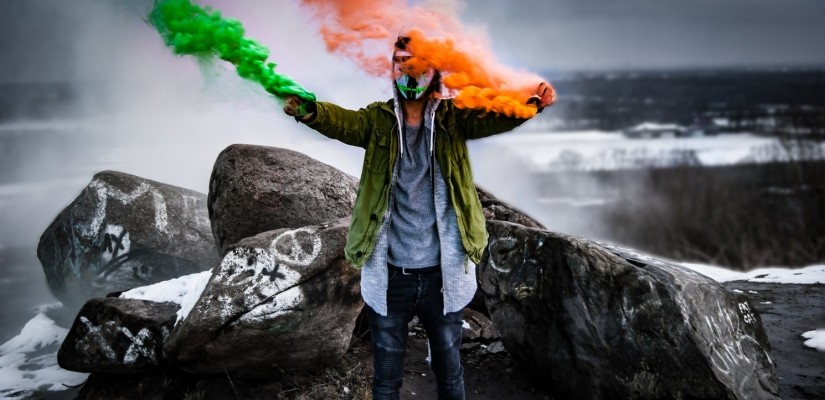The death of 29-year old journalist Lyra McKee in Londonderry, Northern Ireland, on April 18, 2019 was an incident among a series of violent disputes between the New Irish Republican Army (New IRA) and police forces in Northern Ireland. While standing close to a riot between the two antagonists, McKee was unintentionally shot in the head and killed. The New IRA admitted responsibility for McKee’s death and formally apologized to her friends and family members.
McKee’s death follows other violent events such as the placing of parcel bombs in London and Glasgow in March 2019 as well as the explosion of a car bomb in front of Londonderry’s court building. The instigator of these episodes is the New IRA, a militant group of Irish republicans that hopes to reunify Ireland and Northern Ireland. The New IRA was established as a paramilitary force in 2012. It is a successor of the Irish Republican Army, which emerged during the 1960s, and is also referred to as the Real Irish Republican Army. Since the 1960s, more than 3,500 people have lost their lives in the course of the violent strife between the those in favor of a united Ireland and those loyal to the British crown.
The root of the New IRA’s aggressive actions lies in a long history of disputes between Catholic nationalists, known as republicans, and Protestant unionists in Ireland and Northern Ireland. Nationalists support a unified Republic of Ireland independent of British interference, whereas unionists in Northern Ireland wish to remain part of the United Kingdom. The Northern Ireland conflict started in the 1960s and continued until the Good Friday Agreement of April 10, 1998 was signed by the Irish and the British governments to bring peace. The purpose of the agreement was to set up a government in Northern Ireland that would unify unionists and nationalists and allow amicable cohabitation. The two driving forces of the peace treaty, politicians John Hume and David Trimble, received the Nobel Peace Prize in 1998 for their efforts.

Nearly 20 years later, pro-Irish and pro-British parties in Northern Ireland’s government still struggle to agree with each other. This brought Northern Irish politics to a standstill in January 2017 when negotiations between the two leading parties, the left-wing Irish republican Sinn Fein and the conservative, pro-British Democratic Unionist Party (DUP), collapsed and inhibited major decision-making. Likewise, the New IRA also continues to contest British control of Northern Ireland and endeavors to impede the status quo.
Following the events of June 2016, when British citizens voted to leave the European Union, new challenges emerged for politicians in Northern Ireland. In the course of the referendum, 44% of Northern Irish voters supported a departure from the EU, while 56% voted in favor of remaining in the EU. The forthcoming conclusion of Brexit could re-escalate tensions between unionists and nationalists. A hard border with walls and customs checks between the Republic of Ireland and Northern Ireland could be re-imposed. The lack of a clear solution to this conundrum has delayed the still-ongoing Brexit negotiations and strained relationships between UK policymakers and EU authorities.
Two possible outcomes of the Brexit process could be either a more rigorous separation of Northern Ireland and the Republic of Ireland or the reunification of the two territories. The latter solution would be deemed a success by the New IRA, whose purpose would be fulfilled. This may ease tensions and halt attacks by the militant group, but at the same time it would leave unionists within Northern Ireland dissatisfied and potentially open to reprisals. This resentment may incite further conflict between the two warring camps, and the situation would not find a peaceful conclusion. Alternatively, a physical border dividing the Irish and British territories will only increase the risk of escalating this decades-old feud and will most likely provoke more violent action by the New IRA. Finding a middle ground between unionists and nationalists will prove difficult and therefore the risk of further riots, political tensions, and lost lives needs to be anticipated.
